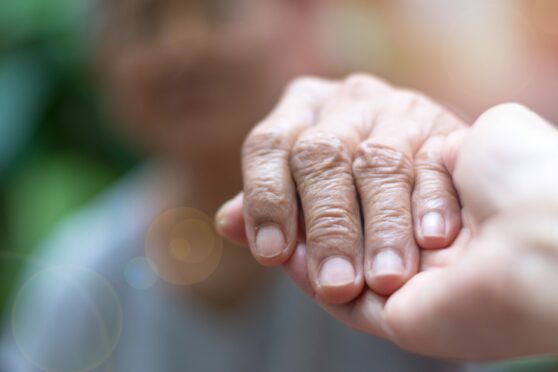
Care home workers suffered psychological distress during the pandemic with many sacrificing their own home life to protect residents, according to research.
Academics at University of Highlands and Islands (UHI) interviewed dozens of care home workers to chart their experience as Covid swept through Scotland’s care institutions.
Dr Michelle Beattie, senior lecturer at UHI, who led the study, said workers felt like they were in a war against the pandemic.
“There was a sense of ‘we need to pull together and face this together’,” said Beattie. “You read about that sense of camaraderie in the military and people deploying to war but not that much in healthcare. None of us had seen that before in any previous work.”
Anonymised responses from workers included testimonies telling how some moved out of their own homes for months to protect their own families and residents. One said: “I lost seven months with my daughter so I could keep me safe, them safe and my residents safe.”
A third of all Covid deaths happened in care homes, the majority in early months of the pandemic when there was very little testing carried out and dozens of hospital patients with the virus were moved to care homes.
Lady Poole QC, Senator of the College of Justice of Scotland, will lead a public inquiry into the handling of the pandemic, which will identify lessons to be learned and recommendations for reform. The study took place with academics gathering information from 52 workers from Balhousie Care Group’s 26 care homes.
Lindsay Dingwall, a co-author of the study and Clinical Care Quality Manager at Balhousie Care Group, said: “As emotional and raw as this study was for our respondents and the researchers, it was hugely important.”
The study concluded that there is a moral obligation to provide psychological support to workers.
Social Care Minister Kevin Stewart said: “We owe an enormous debt of gratitude to our nation’s carers for their commitment demonstrated throughout the pandemic. We have made £12 million available to support the wellbeing of the workforce.”

Enjoy the convenience of having The Sunday Post delivered as a digital ePaper straight to your smartphone, tablet or computer.
Subscribe for only £5.49 a month and enjoy all the benefits of the printed paper as a digital replica.
Subscribe